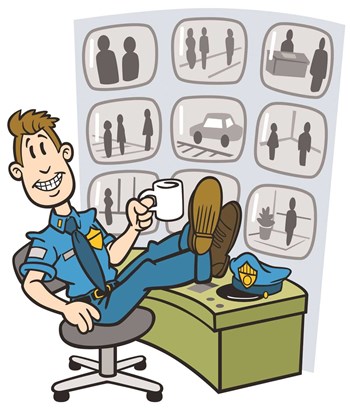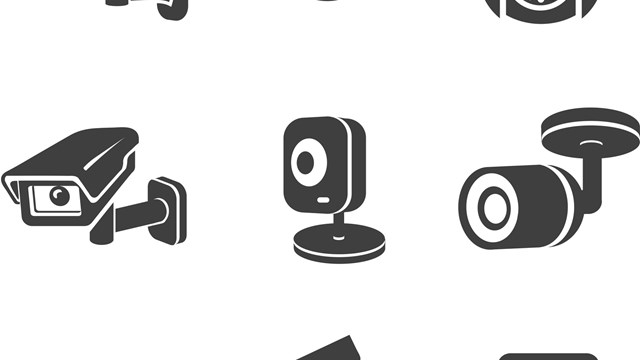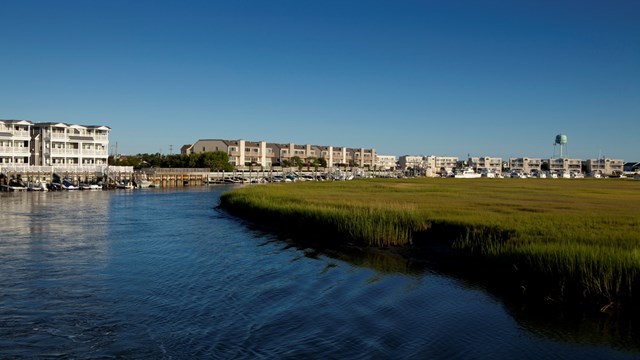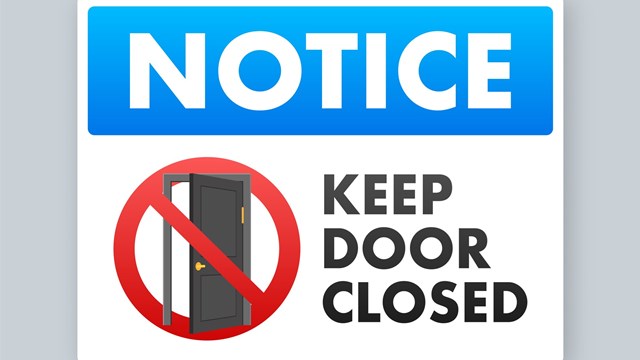
There are many different factors that prospective condominium owners contemplate when looking to buy a unit. Aesthetics, price, and location are important, for sure. But perhaps the most critical factors of all are the safety of the building and the neighborhood it’s in.
Despite the country's urban areas reporting fewer serious crimes in recent years, it would be naïve—not to mention irresponsible—not to take proper steps to safeguard one's home and loved ones. To that end, most condominium associations and boards of directors employ some sort of surveillance on their properties to keep watch over them in a visible way, and give residents a sense of security. Unit owners can expect to see those ubiquitous cameras in hallways, in garages or parking areas, near elevators, and at common areas like pools, tennis courts, or other amenities.
Do Cameras Really Provide Security?
Fundamentally, cameras are just mechanical eyes. While they may deter crime to some degree, when it comes to security, their prime purpose is to record happenings in an environment for use later by condominium boards and hired security staff if a problem is reported.
That’s the catch. Whether or not there are security stations and guards on a property, it’s rare that someone is sitting there watching the surveillance video feed 24 hours a day, seven days a week. Some attorneys caution condominium owners that having cameras on site doesn’t mean that the environment is safer than if they were absent.
“It's going to create an expectation that the condo association is going to assume some liability. That's not necessarily the case. You don't want to install a bunch of cameras and all of the sudden the residents start thinking that if I do get broken into, the association is admitting that they're liable because they're installing cameras. You don't want that assumption to occur,” says Michael D. Mirne of the Law Offices of Michael D. Mirne, LLC in Ocean, whose practice concentrates in the area of landlord-tenant law, tax appeals, zoning and land use.
So the questions remain: Does having numerous cameras around actually make a difference? Do management companies find that properties with a greater security presence experience a drop in crime?
The short answer is yes. If unit owners and visitors see cameras around the property, then there is the immediate assumption that there is someone, somewhere, monitoring the feed—and that it's probably best to mind one's Ps and Qs.
Reasonable Care
So while the sight of an unblinking mechanical eye can discourage some types of crime, small condominium associations beware; if you’re going to put cameras in place and provide residents with that comforting feeling of security, then it is your duty to maintain those cameras with reasonable care.
“If it's a high rise, it would definitely be a good idea. A lot of it just comes down to the reasonableness of installing it. If it would be reasonable to install video surveillance it's always a good idea. You can't ask someone to adopt a standard that is so costly, that would drive everyone's condo dues through the roof,” says Mirne, who is also a certified tax attorney.
While condominiums are not required to have cameras on site, if the community is in a high-crime area, management should want to know what’s going on so they can put a halt to any mischief. Put simply, residents don’t want to live in a high-crime area, and managers want people to occupy their homes in peace.
“Security cameras are being more frequently used everywhere in society, and community associations are amongst those groups. I'm not seeing in my practice a huge influx of security cameras, but because of concern for personal security and theft from common property, and entry into the community, I am seeing some associations go that way,” says Eric D. Brophy, Esq., a resident partner at the law firm of Diegnan Brophy, LLC in Wall Township.
But once the idea of security cameras is introduced to an association, who has the power to install them, and how will the association pay for it? The responsibility falls entirely on the board to make a decision on behalf of the association. Naturally, costs fall to assessments and general association operation costs.
Where You’re Being Watched
In addition to fundamental security, condominium owners also have an expectation of privacy. That means that when you’re inside the comfort of your own home, you don’t want or expect to have your board, neighbors, or association staff breathing down your neck, monitoring your movements, or otherwise invading your space. “Once you walk outside your home, under federal law there is no expectation of privacy,” says Mirne.
But inside individual condo units are completely off limits for surveillance. If an outside security camera even captures part of someone's window that shows the inside of their unit that can be a direct violation of privacy. There have been instances of people in more high-income buildings installing their own video surveillance in front of their door. In that case, as long as the video only captures what's directly at their door, and not any of the common space, it does not violate condo law. “If it's a high-rise building that's a different story, because the entrance is common. In a townhouse development, you can't have enough of them to provide a blanket over the entire community. If you start pointing at people's houses and they have the possibility of seeing into somebody's house, that could be an invasion of privacy,” says Brophy.
So where are some of the places that management or security companies most definitely want to make sure your property has surveillance? Basically anywhere that's a common element is fair game. “There are common elements and the board has control over them on behalf of the association, but people do have a right to privacy and don't want to have their comings and goings recorded. Some person who lives there or a guest, doesn't want their comings and goings recorded for whatever reason. They would have a privacy issue, and a lot of associations don't have security cameras for that very reason,” says Donna Shahrabani, an attorney and partner at the law firm of Buckalew Frizzell & Crevina LLP in Glen Rock.
One of the intrusions of privacy residents may feel is when the use of surveillance is pinned on their actions, and not necessarily their safety. “For example, some find that there are people who misuse gym equipment or laundry equipment. A lot of times, associations want to put cameras in places like that, or outside the building if they feel that there's crime being committed or for security purposes,” says Shahrabani.
Other Popular Measures
When evaluating condominium security, look beyond the camera. In many of today’s neighborhoods, boards are issuing key cards and key fobs. These devices can monitor when residents enter and exit a common area of a building or association. Another benefit of this kind of access technology is that if something were to happen—say an owner were to lose his or her access card, or the management company had to restrict someone's access for whatever reason—all the manager has to do is go into the computer system and deactivate that resident's unique key card or fob. These developments in technology make everything much easier for managers and unit owners alike, because no one has to keep track of keys.
Surveillance footage, under the law, can fall under other association documents that unit owners could possibly obtain through a formal request, but boards do have some leeway as to how the handle this. “If there apartment was broken into, the association should tell them to have their lawyer acquire footage through a subpoena,” says Mirne.
To be aware of the timeframe for reporting an incident, unit owners may want to inquire with their management company how long video records are kept. Suggestions differ as to how long condominium associations should keep their security footage. While certain management companies may only hold on to the footage and images for 24 to 48 hours, others may keep it for up to six months.
Let’s Go to the Videotape
What should your particular HOA's policy be for keeping security cam footage? Let's say somebody slips and falls somewhere, and no crime is involved, and they bring a personal injury lawsuit against association. The lawyer in the context of discovery is going to ask for evidence from the surveillance footage. If there was a crime, and the police got involved and asked to see the tapes, the association would be obligated to turn them over also,” says Shahrabani. In such instances, it's best to be as conservative as possible and save footage of any potential interest for at least as long as the statute of limitations requires, she says.
However, cost and storage space do place some restrictions as to how long the footage can be kept around with no special incident of interest. Some systems, for example, may have an actual tape that can hold 24 hours of footage and then it automatically kicks back, recording over the previous day’s footage at the start of each new day. That means associations would only have a 24-hour window to review footage in the wake of an incident.
That online availability and image storage could make security records available for longer than a straight tape feed. However, keeping that imagery requires server space and that server space can be very expensive. In most cases, condominium associations are only fronting the money to increase storage space if they have a good reason.
While real cameras and other technology may make even honest citizens feel a bit nervous, security measures—in increasing dosages—are here to stay.
Emile Abbate is a freelance writer and a contributor to The New Jersey Cooperator. Editorial Assistant Tom Lisi contributed to this article.






Leave a Comment